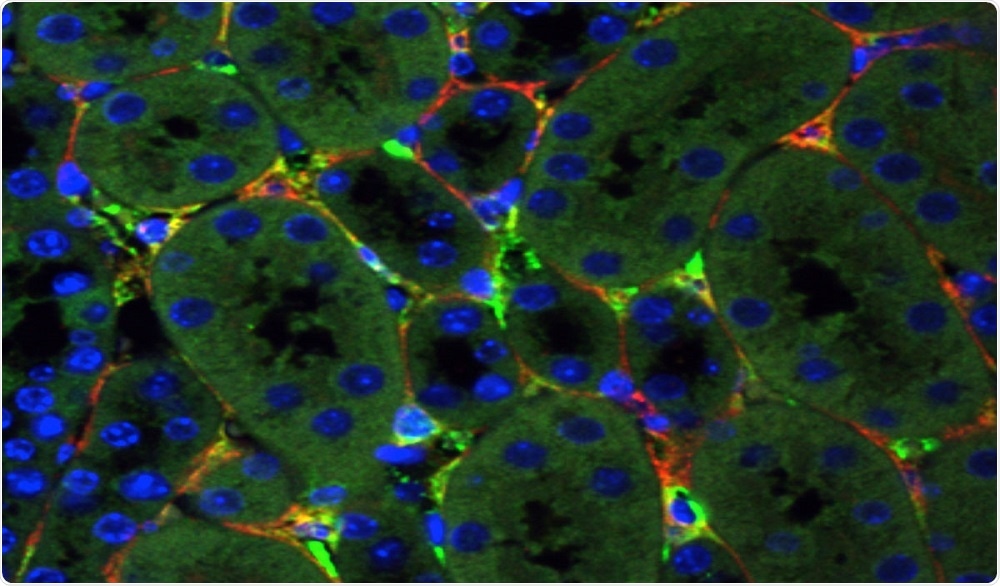A study led by Washington School of Medicine has shown that a viral vector can deliver genetic material to damaged kidney cells, potentially providing a treatment that can slow or reverse the damage that leads to chronic kidney disease.
 In this slide, bright green depicts genetic material delivered by a synthetic virus to mouse kidney cells, while the red stain shows cells that cause chronic kidney disease. (Image Credit: YOICHIRO IKEDA / Washington University)
In this slide, bright green depicts genetic material delivered by a synthetic virus to mouse kidney cells, while the red stain shows cells that cause chronic kidney disease. (Image Credit: YOICHIRO IKEDA / Washington University)
In the U.S., chronic kidney disease affects around 30 million people, most of whom do not realise they have the condition until irreparable organ damage has set in because symptoms such as nausea, vomiting and swollen limbs are so common and non-specific to the disease.
There is also no cure for the condition and the main treatment approaches to end-stage disease are dialysis and kidney transplant.
Chronic kidney disease is an enormous and growing problem… Unfortunately, over the years, we haven't developed more effective drugs for the condition, and this reality is leading us to explore gene therapy."
Benjamin Humphreys, Senior Author
As reported in the Journal of the American Society of Nephrology, Humphreys and colleagues tested whether six strains of adeno-associated virus (AAV), both natural and synthetic, could deliver genetic material to kidney cells in mice and in stem-cell-derived human kidney organoids.
They found that one synthetic strain, Anc80, was successful at targeting two cell types involved in causing the irreparable damage that occurs in chronic kidney disease.
The researchers also found that this same virus could be used as a gene therapy to treat mice with kidney scaring, a finding that Humphreys refers to as: “A happy surprise. We were not expecting this."
Humphreys also says the interesting thing about AAV is that these viruses persist in the body for many months, which potentially allows time for the gene therapy to do its work.
Chronic kidney disease is a slowly progressive disease so that is an advantage. After many more years of research, we could envision that patients would need injections maybe twice a year as opposed to every week, like with chemo.”
Benjamin Humphreys, Senior Author
Given the lack of innovation there has been in kidney treatment so far, the current finding represents an encouraging and positive step forward.
Source:
https://www.eurekalert.org/pub_releases/2018-07/wuis-gtm070218.php